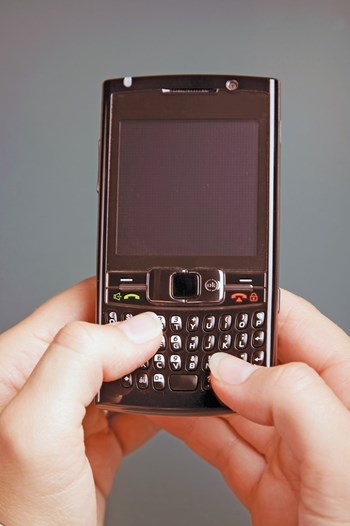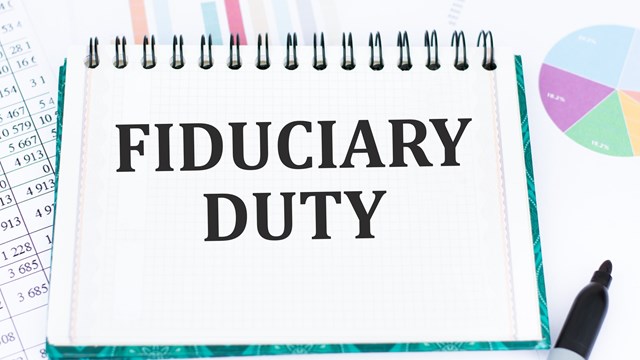
As recently as five years ago, traditional phone logs and Rolodexes were a common part of a property manager's daily communications arsenal. Yet, with recent advances in property management software, such anachronistic methods are largely a thing of the past. Today’s tech-savvy manager can handle large volumes of communication, track and prioritize messages, schedule maintenance, and interact with vendors via modern web-based applications. Some of these applications can even serve as one-stop solutions for every aspect of condo communication.
Proactive Communication
With modern email and broadcast software real estate management companies have found ways to communicate and document all at the same time. “I think the biggest shift [in recent years],” says David J. Levy, PCAM, a veteran property manager and president of Sterling Services in Holliston, Massachusetts, “is the percentage of reactive versus. proactive communication. Our goal as an industry is to have no communication reactively, because we’re a fixed-fee business. We’re not like attorneys who are hourly. Attorneys like conflict and complexity. If you’re fixed fee, you want to have people know about an issue in advance, so you don’t have as many questions.”
And residents and owners tend to appreciate proactive communication, says Adam Jernow, a principal with OGI Management in Manhattan. "If a persistent problem has been reported, we need to be able to show our clients that we have taken steps to correct that problem, and we need to be able to document that we have been taking the steps recommended by experts. It has to do with queuing theory—the idea that the acknowledged wait is much better than the unacknowledged wait. If you're waiting on a bank line and no one is saying, 'Next please,' and everybody is just milling about, it's much more frustrating than if you're told, 'We're handling number 56 and you're number 101.' At least you can see that people were moving along."
"Our software system maintains the information in each individual homeowners 'file,' " says Denise Lindsey, vice president of Access Property Management in Edison. "We can track from inception to completion of a project, and alert the owner of the progress. We also ask them to return a short questionnaire regarding the response time, quality of the work, and so forth."
More Time for Managers
One of the biggest advantages of using technology in the business of property management is time saving—or at least buying more time for managerial rather than administrative tasks.
Jernow agrees. "Property management software is crucial to our operations. All owners...in our buildings have access to our online portal where they can register a task, which immediately sends us an email so that we can be aware of the task, handle it, and then track the solution to the problem. It also tracks payments for us. Most payments from owners and renters are made 100 percent online through our portal, which is great for record-keeping because when someone makes a payment, our property management software sees it automatically and logs and applies [it] to the existing balance. We also use it to track bills and show us bills by vendor. We even use it to have people sign up for exterminator service monthly, so that we can track who requested exterminator service. And that's all done online, which is great."
"Most of our managers are using Outlook to manage their incoming email and setting up appropriate folders,” says Nancy Hastings, CEO of MAMCO Property Management in Mt. Laurel. “And if you handle it just like you do your normal office duties, you have an 'IN' bin which are those things that you need to get back to, and an "OUT" bin, which are your folders where you place communications that you've already responded to or perhaps maybe it was informational in nature. And then you periodically get back to your “In” bin as the priority of those messages are coming in."
"Pushing emails to a mobile device such as an iPhone or BlackBerry, is crucial,” says Mary Faith Radcliffe, a property manager and the principal of RCP Management Company in Princeton. “If a manager leaves email unchecked for long, managing their inbox can become nearly impossible! Separating emails into folders by property is a big help. That keeps a record of the conversation for the manager to review later if needed. Addressing the mail quickly and moving out of the inbox into a folder is a good way to keep organized. As far as phone calls, we 'push' our voice messages to the manager’s inboxes. If a manager is out in the filed, they will be able to check their mobile device for emails and see they have a voice mail message back in the office. The managers can listen to the message right through their emails and address it immediately, or forward it as an email to the appropriate person. It’s quite efficient."
While many managers list email as their primary means of corporate communication—giving them the ability to communicate and document at the same time—the term hardly does justice to the web-based programs that are revolutionizing many management operations. Today, there are integrated websites or other services that can pull data out of a management firm's accounting system or customer service software and automatically send a ‘web blast’ or broadcast email to all residents, or even to just a selected list of recipients. Finding the software and functionality that fits best with your building or association takes some research and homework, but with the broad array of options—AtHomeNet, BuildingLink, and AssociationVoice, just to name a few—available, there's a package for every community's needs.
Simplified Communications
And with newer software, communication—both to and from residents—has been simplified. Residents don’t necessarily have to pick up the phone and call or leave a message with management, or with an answering service. Online residents can put in a maintenance request that gets sent directly to management or building staff.
Another innovation that utilizes the convenience of voicemail with the brevity of texting is what some managers refer to as "shout out" messages. A number of companies provide a service that allows managers to send customized, one-way voice messages—somewhat like a 'do-not-reply' email notification, only in verbal form—to members of their client communities. The manager records the outgoing message, decides the time of day and group of residents to whom it's to be sent (townhome versus high-rise owners, for example), and the company forwards it to the selected recipients. Tools like this are becoming very popular, and are nominal in cost and start-up expenses.
Lindsey's firm makes use of similar functionality. "Our firm also has a direct dialer system to communicate to the entire community if there is a water main break or some other event that would cause a volume of calls coming in," she says. "We update the information going out as it changes so the community is informed of the status of the event."
To Tweet, or Not to Tweet?
While broadcast software services like the ones mentioned above have revolutionized condo communication, other recent web-based technologies have not taken off as some might have predicted. A number of pros say that, unlike many businesses, Facebook and Twitter have not become a major part of their overall communication model. “We do have a page and whatnot for Facebook.,” says one property manager, “but it’s more of a marketing tool [than a communication] tool.” And while some condo websites do offer community blogs for their residents, many boards have found such technologies to be less than helpful, often turning into forums for overly-negative, one-way communication. “We didn’t feel we got value out of it,” says Levy of his experience with condo blogging. “It didn’t solve problems.”
Downsides – and Limits
Of course, even as advancing technology has made some aspects of property management immeasurably easier, being connected and available 24/7 has its downside for managers as well. Like the rest of corporate America, managers and board members aren’t immune from the curses of modern wireless devices like a BlackBerry or an iPhone.
“We prefer email, but always follow up with phone calls for a personal touch,” says Lindsey. “The pros of email are that it provides a good trail of events, and documents how they are developing and being handled. The cons of getting emails via smartphone are that we are connected 24/7—and once we respond after-hours, the expectation will always be there. Most of our managers try to limit their after-hours responses to emergencies only.”
Many managers echo Lindsey's sentiments regarding the expectation of instantaneous responses to residents' issues. "Let's say I'm not at my desk," says one manager. "And a client calls me and gets no answer. So they'll send me an email. I'll see the email, and it takes me 10, 15 minutes to put together what they're looking for and send it to them. In that intervening 15 minutes, I will often get a phone call at my desk asking, 'Did you get my email?' And if I don't answer the phone fast enough, they'll hang up, and call my cellphone. Because of instant messaging and all of these devices that are so quick and transmitting these messages so rapidly, everybody—myself included—wants immediate responses. That's the biggest drawback to all of this."
Sheer volume has its own set of issues, says Hastings."It can get voluminous," she says, "and it can be difficult at times. It's important for managers to set an expectation level with the people that they're communicating with as to when they will be returning their messages or emails, especially if they're not going to be at their desk for a period of time. It's very important to use your out-of-office assistant to let people know if you're going to be away, so that they don't leave something important sitting in an email that otherwise could go to someone else who could handle a facility maintenance item."
There's also the issue of professionalism in communications. "During business hours, I prefer to respond by email from our desk computers," says Lindsey. "It's much easier to type on those and the chance of spelling errors is reduced. The smartphone is good for quick responses, but even though everyone's phones say 'forgive any typing errors,' it's just far more professional to have complete sentences with correct spelling and grammar."
It's also self-evident that if a resident doesn't own a computer, or isn't versed in using email, all the streamlined digital communication in the world is pretty useless. Most managers polled for this article say that while they are nearing a point where all memos can be sent via email, there are still some residents who don’t own computers and require a hard copy of documents. Websites and portals where HOA administrators can post memos about projects or meetings are definitely handy, but until all residents have web access, they're not 100% effective.
And in the end, the best software means nothing without competent, thoughtful execution. “What technology does is make existing systems go faster,” notes Levy. “It doesn’t make them better or worse, it makes them faster. So if you have a bad system, you have a faster bad system.”
To deal more effectively with the influx of communication, "I do think that if managers have their instant messenger window open constantly, that can be very distracting," says Hastings. "And I recommend that they go into their email and check it several times a day, rather than having it perpetually on and having it interfere with their regular activity on the computer."
And the pros agree that sometimes, depending on the message being conveyed, a text message or mass email just isn't the way to go. “Ongoing work is always best to be handled in writing to give the homeowners as much information as possible regarding what is to be expected and what is going to be expected of them,” says Lindsey, “like parking, removing items from walls, and so forth. Mailing information regarding upcoming annual meetings and picnics give the owners something tangible to hang up or post on their message boards or refrigerators.”
Indeed, sometimes there's nothing wrong with the good old-fashioned method of hanging a notice on the bulletin board, or putting a notice under a door. And for anything of greater importance, such as a maintenance increase, snail-mail - despite the less-than-speedy name - lends gravitas to the document in a way that an email just can't. Using the full range of communication tools available to managers and boards is the key here - because better communicators are better administrators.
Matthew Worley is a freelance writer and a frequent contributor to New England Condominium magazine. Additional reporting by the New Jersey Cooperator's David Chiu.






Leave a Comment